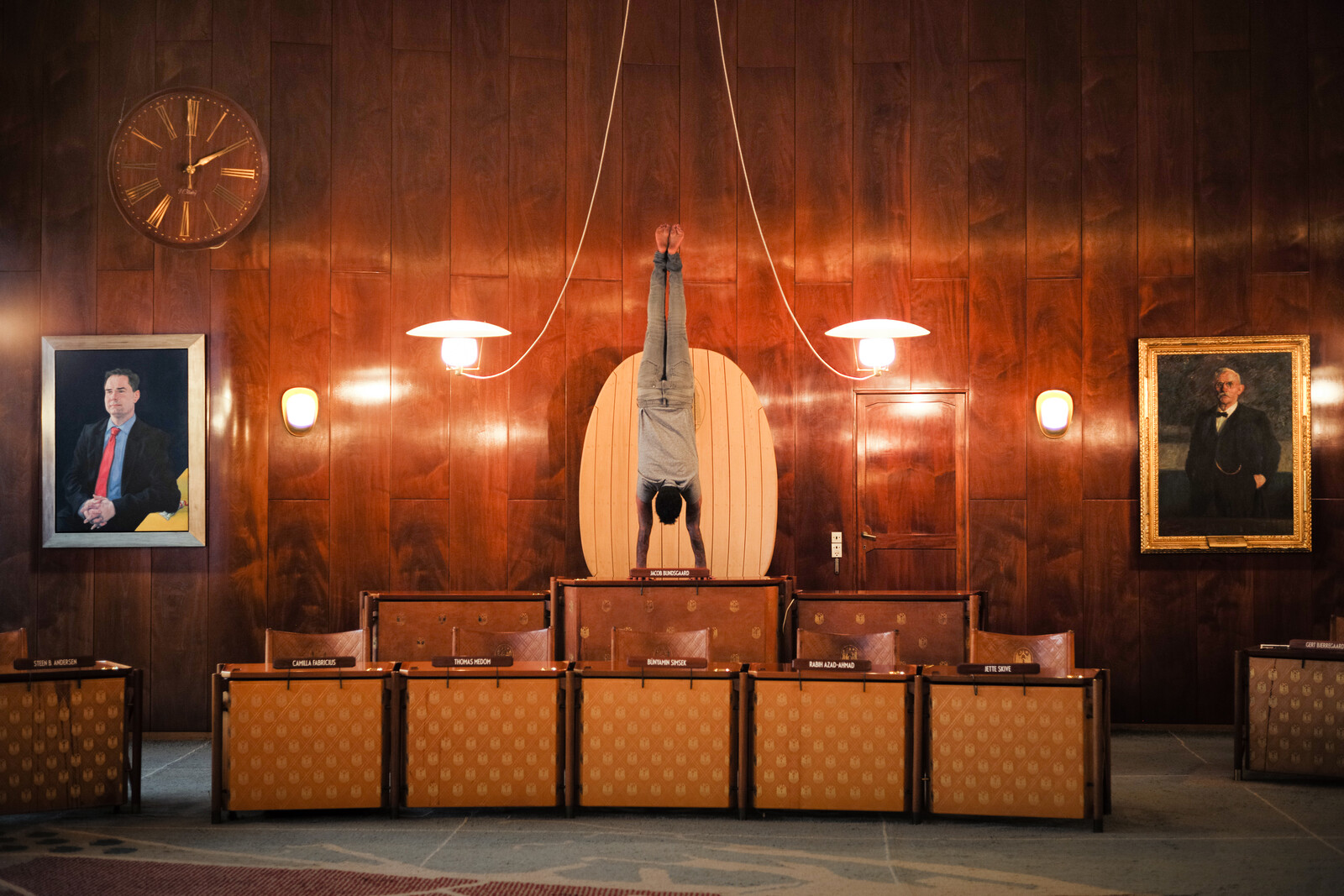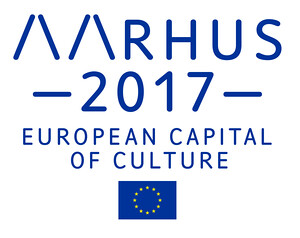Mother Tongue
A Commission of European Capital of Culture Aarhus 2017
November 11–December 17, 2017
Angelica Mesiti creates her newest commission, Mother Tongue, in the European Capital of Culture, Aarhus, Denmark. Mother Tongue is both a celebration of and investigation into language, song and the beats and movements it engenders and maintains. All are entwined and enshrined examples of a cultural belonging that commences from the cradle and continues to the grave. Lullabies become anthems and nursery rhymes become stanza and verse. Rhythms become play and regimented structural togetherness.
Mother Tongue creates a new musical and singing ensemble and community. One comprised of ancient and newer rhythms, traditional and different songs, demonstrating personal feats of balance, poise, individualism and collectivism.
Mother Tongue is filmed in a number of locations and communities in Aarhus, including the iconic Town Hall designed by Arne Jacobsen and Eric Møller, the award winning DOKK1 library and in the so called ghetto Gellerupparken. This is a socially democratic housing of Corbusian style towers on the city’s perimeter with a high percentage of low income and disadvantaged population.
Mother Tongue is commissioned by European Capital of Culture Aarhus 2017.
“Mesiti presents the certainty and brightness of the Danes whose history binds and reinforces them, conjoined with the communities of newly arrived peoples seeking a way to belong while retaining their own songs, language and rituals. All need to come together so they can exist ensemble and sometimes side by side, integrated rather than assimilated, to form a new culture of refreshed energy and futures together.
With its nocturnal tinge of the blues Mother Tongue is ultimately an optimistic and gentle creation. It is full of the humanity Mesiti’s special observations find in her subjects of social flux. Mesiti’s newly assembled Danish community embraces communality and difference. Each player hopes and maintains a delicate balance that is at times syncopated between old and new, past and future. All strive to live in the same beautiful place where the moon hovers in a bright blue night sky.”
–Juliana Engberg, Programme Director, European Capital of Culture Aarhus 2017.
As the title suggests Mesiti imbues all her scenarios with a gentle light, and a slowed tempo that blends the sometimes disjunctive anthologies of music and movement she examines and orchestrates. Her palette is nocturnal or dawn lit. Her filming is sensitive to the particular qualities of a Nordic light that establishes the rituals and rhythms of a society.
The slowness of Mesiti’s film pace acknowledges the durational evolution of integration into another society by a people who enter a place already enclosed and ritualised by a shared history, songs, stories and culture. The juxtapositioning of one scenario with another, highlights, yet blends, in a fragile way, the different qualities of togetherness that make up the contemporary, newly mixed Aarhus community.
Mesiti’s project can be applied to everywhere that experiences the influx of strangers. As with any diasporic encounter there is both a new, risky vitality and a sweet melancholy in the observations of those who seek to belong and not to forget their original place and culture, while attempting to perform in concert with their new home.
Mother Tongue by Angelica Mesiti is shown at ‘O’ Space, Mindet 6, Aarhus from November 11 to December 17, 2017. Entrance free.
’O’ Space is supported by Købmand Herman Sallings Fond, The Obel Family Foundation, 15. Juni Foundation, Kvadrat, Ege, Olav de Linde and Panasonic Nordic – Denmark.


